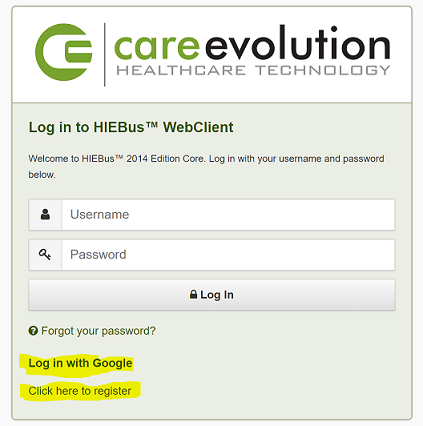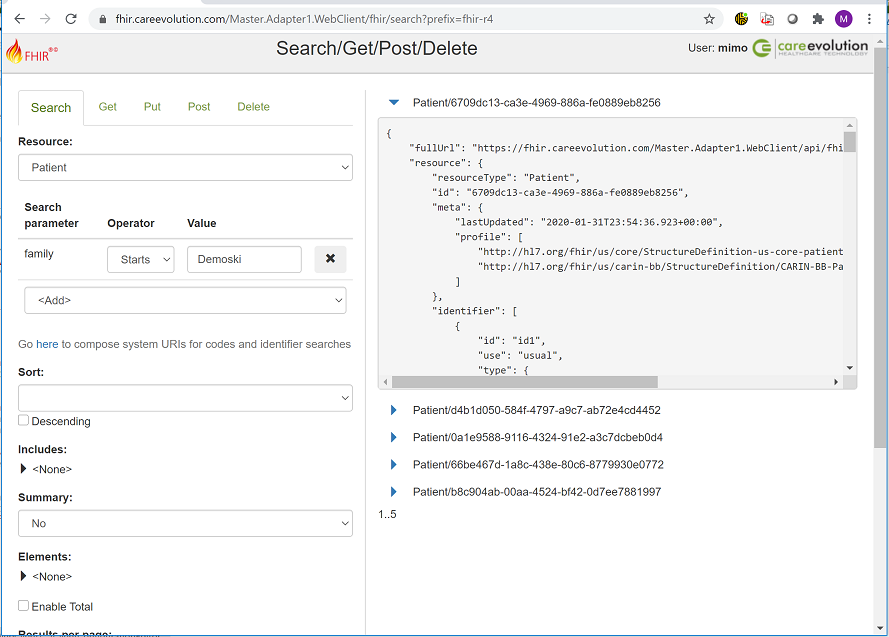This Web site supports the HL7® FHIR® standard with SMART® v1.0 authorization
HIEBus™ WebClient
https://fhir.careevolution.com/Master.Adapter1.WebClient/api/fhir
DSTU2 – documented here, try it here.
HIEBus™ WebClient
https://fhir.careevolution.com/Master.Adapter1.WebClient/api/fhir-providers
R4 (provider index) – documented here, try it here.
HIEBus™ WebClient
https://fhir.careevolution.com/Master.Adapter1.WebClient/api/fhir-r4
R4 – documented here, try it here.
HIEBus™ WebClient
https://fhir.careevolution.com/Master.Adapter1.WebClient/api/fhir-r4-strict
R4 – documented here, try it here.
HIEBus™ WebClient
https://fhir.careevolution.com/Master.Adapter1.WebClient/api/fhir-stu3
STU3 – documented here, try it here.
All end points require authentication, so first login - either registering yourself or using a Google account:

Once logged in you have access to all data through all FHIR end points ('provider' access).
You can play with the FHIR end points using the built-in test page (see links at the top of this page for each end point):

or get a bearer token here and use it in PostMan, curl or other similar tools (or in your own code).
Register your SMART apps here.The OAuth 2.0 authorization and token URLs can be obtained from the FHIR end points as per the SMART-on-FHIR specifications.
The are same test patient accounts - ie users linked to a specific patient and that can access only its data (and the data of dependants in some cases).
All end points support the bulk data access protocol
Backend services authentication is supported as well.
For testing there is a pre-registered client ID and certificate; see here for all the details.
More documentation and tutorials can be found here
See the release notes for a list of all the FHIR API changes by major system version.
Please subscribe to the CareEvolution FHIR group to receive notifications about important changes and upgrades. Use the same group for question and support (works also sending emails to careevolution-fhir@googlegroups.com.